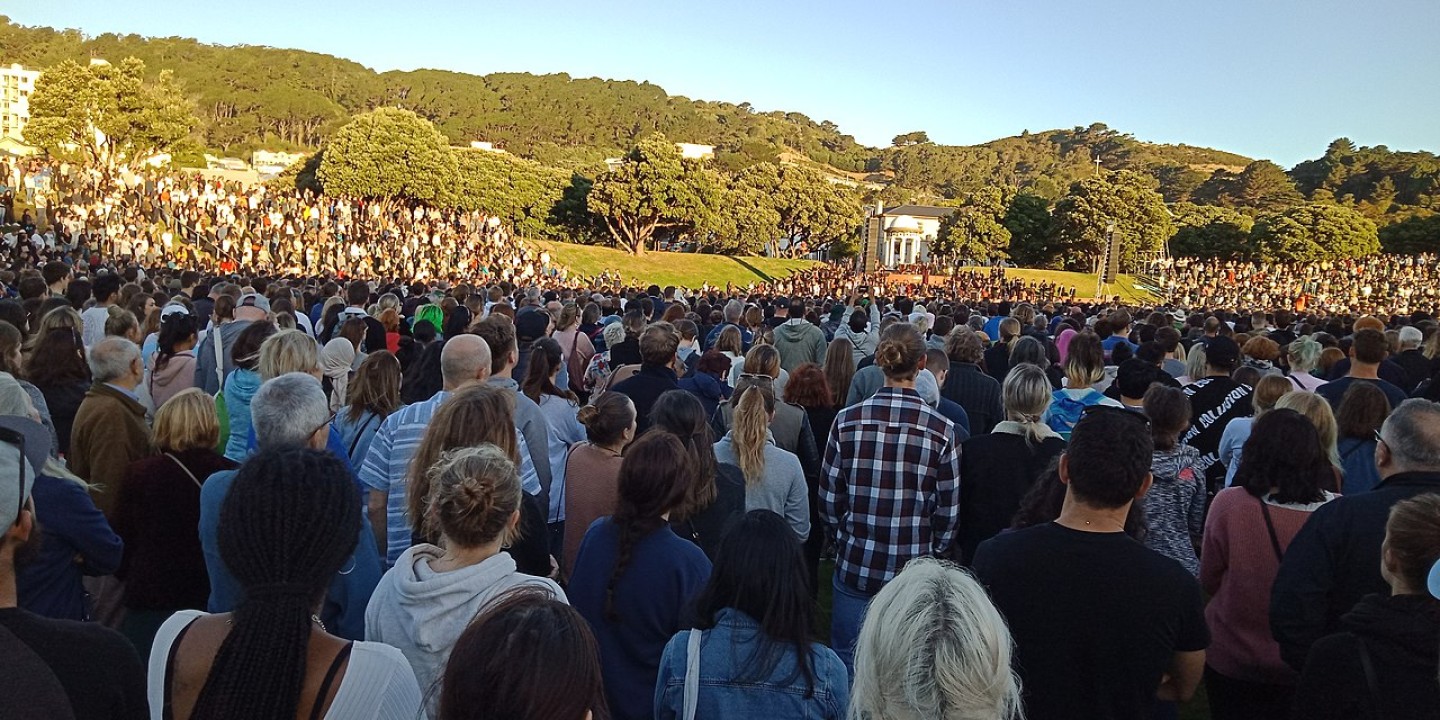New Zealand mosque shootings prompt vigils and vigilance
Civil rights advocates called for curbing hate speech online, as the perpetrator’s video continued to circulate on social media.

Each week mosques come to life with Jummah prayer services, as Muslims greet one another with Jummah Mubarak, or “blessed Friday.” On March 15, Muslims around the world had another prayer on their lips: inna lillahe wa inna illaihi rajioon, “to God we belong and to God we shall return.”
Dozens of Muslims at Jummah prayers in two mosques in Christchurch, New Zealand, had been gunned down and dozens more were injured.
An Australian man in his late twenties who claimed responsibility for the shootings left a 74-page anti-immigrant manifesto in which he explained his white nationalist ideologies and described Donald Trump as a “symbol of renewed white identity and common purpose.”
Read our latest issue or browse back issues.
Mosques around the world increased security. In Philadelphia, the police department’s counterterrorism unit visited every mosque in the city to check on security, and patrol units made frequent checks on local mosques and synagogues. In Dhaka, Bangladesh, police stood guard at a mosque, and French authorities ordered police “to use the utmost vigilance.”
The shootings are not an anomaly but part of a larger pattern of anti-Muslim racism and anti-immigrant sentiment, Muslim leaders said.
Ibrahim Hooper, communications director of the Council on American-Islamic Relations, which sent out a booklet on security tips for mosques and Islamic community centers, said the assailant’s manifesto was “clearly inspired by the kind of hate rhetoric and growing bigotry that we’re seeing in America, referencing Donald Trump and the ‘invasion’ of immigrants.”
The shooter at the Tree of Life–Or L’Simcha synagogue in Pittsburgh in October used similar rhetoric of migrants and refugees as “invaders.”
New Zealand Muslims have launched a crowdfunding campaign for the families of victims and survivors, raising more than $2.3 million in New Zealand currency within a few days, exceeding its goal several times.
The campaign’s page includes photos and stories such as that of Waseem Daraghmeh and his two young daughters, who remained in critical condition. Haji-Daoud Nabi, a refugee from Afghanistan who was president of the local Afghan association, “was shot as he threw himself in front of another worshipper to shield them from the gunman.”
Ray Coster, a World Council of Churches leader from New Zealand, also called its Maori name, Aotearoa, said of such victims and others, “They are part of us. Many came seeking refuge and safety as Aotearoa New Zealand is perceived as a safe place.”
In days following the attack, civil rights advocates called on technology companies to help curb the rise of hate speech online as the perpetrator’s video continued to circulate on social media.
“The aim of both the video and the actions themselves is to cause terror and panic,” the British nongovernment organization Muslim Engagement and Development said in a statement. “We must not allow the perpetrators to meet their aims. We call upon all social media companies to remove such content from their platforms.”
A version of this article appears in the print edition under the title “Countering hate rhetoric after mosque shootings.” The online version was edited March 26.






